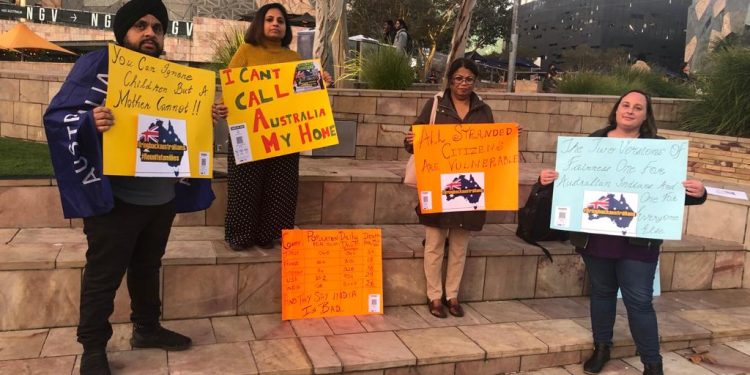Australian Government’s failure to repatriate its own citizens and permanent residents – especially children, more than fifteen months into the pandemic, is a serious case of policy failure and breach of citizens’ rights.
Deepak Joshi
Australia’s Department of Foreign Affairs and Trade (DFAT) today announced six repatriation flights from New Delhi to different destinations in Australia between 24 May and 3 June, as part of its co-ordinated effort to bring Australians stuck in COVID ravaged India back home.
In late April, a travel ban was imposed on India as a response to sharply rising numbers of COVID-19 cases in that country. It was soon followed by another order under the Biosecurity Act that put a stop to all direct and indirect flights from India, with a potential fine of up to $66,000, a five-year imprisonment, or both.
Although both these orders expired on 15 May and new flights by Qantas were announced, all passengers boarding these DFAT co-ordinated flights were now required to test COVID negative in the days prior to departure. Because of this, 70 passengers, including 26 close contacts) who tested COVID negative, were not allowed to board the first flight after resumption and the flight arrived in Darwin half-empty.
With the increased frequency of flights being announced, it must be anticipated that a similar situation will arise, and without proper planning, more Australians will be denied boarding, leaving them vulnerable to COVID infection in India.
There are limited alternative options to come to Australia from India as several other countries have suspended flights from India. With an estimated 9000 Australians in India wanting to be repatriated, it will take several months for all of them to be brought to Australia.
Given Australia’s track record of rescuing its own citizens from various conflict and disaster areas around the world, its recent response to rescuing its citizens from COVID hotspots has been abysmal. In the past, the Australian Government has provided assistance to victims of the Boxing Day Tsunami in 2004, evacuated Australians from Lebanon during the 2006 conflict, and rescued its citizens wounded and killed in the Bali bombings of 2002 and 2005.
Australia’s failure to plan and coordinate rescue flights for citizens stuck overseas due to COVID has separated members of families for months, and in a number of cases, children from their parents. According to DFAT, more than 170 children are currently stuck in India without their parent because of COVID restrictions. Many of these children were visiting their grandparents or other relatives before the pandemic struck.
The fact that unaccompanied children are not allowed to travel on Qantas repatriation flights back to Australia has also made it extremely difficult for these kids to come home. Air India is willing to carry unaccompanied children to Australia, but its flights are few and far between at this point in time.
Australia has previously run repatriation missions for children. In June 2019, Australian Government repatriated, from Syria, eight children of two slain ISIS fighters who were Australian citizens. There is no reason why Australia cannot do the same for the children stuck in India.
Australian Government’s failure to repatriate its own citizens and permanent residents, especially its children, more than fifteen months into the pandemic, is a serious case of policy failure and breach of citizens’ rights.
Australia has previously demonstrated its capability to give its citizens top priority in times of crisis.
It is time the Australians in India are given the same treatment.
Follow NRI Affairs on Facebook, Twitter and Youtube.
Please send your write-ups on editor@nriaffairs.com











